Selling your home in Metro Detroit is a big decision – one that brings excitement, anxiety, and a lot of questions. For many Metro Detroiters, a house isn’t just four walls; it’s years of memories in that Royal Oak bungalow or Canton colonial. When it comes time to sell, you want to do it right. So, what exactly should you know to sell a home in Metro Detroit quickly and profitably? In this friendly guide, we’ll walk you through everything you need to know before listing your Metro Detroit home. From understanding the local market and the best time to sell a house in Michigan to smart prep work, pricing strategies, and avoiding pitfalls, we’ve got you covered. Let’s dive in!

Understand the Metro Detroit Real Estate Market
Before you put up that “For Sale” sign, take a step back and get familiar with the Metro Detroit real estate market. Our area’s housing scene is dynamic and diverse – and knowing the current market conditions will help you make informed decisions. Here are a few key local trends every seller should know:
- Rising Prices, High Demand: Home prices in Metro Detroit have been climbing. In fact, as of early 2025, the median sale price in Metro Detroit was around $323,950 – roughly 6% higher than a year prior. Fewer buyers are out there compared to last year, but demand still exceeds supply, so prices remain strong. In short, it’s still a seller’s market in many neighborhoods.
- Low Inventory: One reason prices are up is that there are fewer homes for sale. Many homeowners are holding off on listing (for example, folks who locked in low mortgage rates are staying put), which means buyers today have limited options. For you, low inventory means less competition – a well-prepared home can really stand out.
- Quick Sales for the Prepared: Despite some economic headwinds, well-priced, well-presented homes are selling fast. On average, listings in Metro Detroit spend around one month or less on the market. In late 2024, homes in hot areas (like Oakland County) were selling in under 30 days on average. This underscores a big point: buyers are out there and serious – they will snap up an attractive listing quickly.
What do these trends mean for you as a seller? Essentially, you have the wind at your back. The market is favoring sellers, but to fully capitalize, you must still approach the sale strategically. Price your home correctly, make it show nicely, and you could be looking at a swift sale at a great price. However, if you misstep (like overpricing or neglecting repairs), even a strong market might not save you – today’s buyers are value-conscious and will pass on a listing that doesn’t meet their expectations. The takeaway: know the market, but don’t get overconfident. Combine a favorable Metro Detroit market with smart selling tactics, and you’ll maximize your results.
When Is the Best Time to Sell a House in Michigan?
Let’s talk timing. One of the most common questions Metro Detroit homeowners ask is, “When is the best time to sell my house?” Michigan’s four distinct seasons play a big role in the real estate calendar. While a well-priced home can sell any time of year, there are optimal moments to list. Here’s a season-by-season look at selling in Metro Detroit:
- Spring – The Peak Selling Season: Spring is traditionally the hottest time to sell a house in Michigan. As the snow melts and flowers bloom, buyers come out in force. Families often prefer to house-hunt in spring so they can move over the summer before the new school year. In Metro Detroit, the spring market usually means more buyers, more showings, and often multiple offers. In fact, mid-April tends to be a sweet spot – a recent national analysis found the week of April 13–19 is expected to have the ideal mix of high buyer demand and low competition for sellers. The upshot? If you can, aim to list in spring to ride the wave of peak buyer activity.
- Summer – Still Strong: Summer in Metro Detroit remains a strong selling season. The spring rush often extends into June and July, with many buyers hustling to close and move before fall. Homes show well with lush green lawns and longer daylight for evening showings. While you might see the frenzy cool just a bit in late summer (as some families settle in for back-to-school), serious buyers are still shopping. Pricing right is key – summer buyers have seen the spring inventory and are savvy about values.
- Fall – Moderate but Motivated Market: Come fall, the market usually slows down slightly, but there are advantages to selling this time of year. Autumn buyers in Metro Detroit tend to be motivated – whether they’re relocating for a job or just didn’t find the right home in spring/summer, they mean business. Your home can look charming with fall colors and festive decor, and with fewer listings on the market, yours can attract more attention. Just be prepared: pricing might need to be a bit more competitive than in spring, and you may not get as many multiple-offer situations. Still, a well-maintained home will sell in the fall — especially if inventory is tight.
- Winter – Slower but Low Competition: Michigan winters are infamous, and yes, the housing market cools down along with the temperatures. Buyer traffic drops during the holidays and frigid months. That said, winter sales do happen. The buyers out looking in January and February are usually very serious (who else trudges through snow for an open house?). Plus, many sellers wait until spring, so a winter listing faces far less competition. To succeed in winter, make your home feel cozy and bright (think holiday lights, a shoveled driveway, a warm interior during showings), and be patient with the smaller buyer pool. If you need to sell in winter, don’t fret – homes do sell year-round, just manage your expectations on speed and maybe price.
The best time to sell a house in Michigan is generally spring through early summer for sheer buyer volume. However, Metro Detroit’s market has buyers active in every season. If your personal timeline doesn’t align with the spring selling season, you can still have success – just adjust your strategy. A great home that’s priced right will attract buyers in any month. Consider your local neighborhood trends as well (for example, if you live in a college town or near certain employers, there may be other upticks in demand), and plan accordingly.
.png)
Price Your Home Right from the Start
Pricing your Metro Detroit home correctly is arguably the most important decision you’ll make in the selling process. Set the price too high, and your listing could stagnate for weeks with little interest. Price it too low, and you leave money on the table. So how do you find that “just right” price?
Start by looking at the comps – recently sold homes comparable to yours in location, size, and features. In a market as diverse as Metro Detroit, values can vary street by street, so hyper-local data is key. If homes similar to yours in Novi or Ferndale have been selling around $400k, that’s a strong indicator for your own pricing. Also factor in broader market trends (remember those rising prices and low inventory?). With prices up about 6% over last year in our region, you might be able to push a tad higher than last year’s comps – but tread carefully and take your agent’s advice. Buyers today are value-conscious, and they won’t even bother with an overpriced listing in this market.
It’s worth noting that a correctly priced home will often sell quickly and for top dollar, sometimes even above the asking price if it sparks a bidding war. On the flip side, an overpriced home can languish with few showings and might eventually sell for less after price cuts. The goal is to create that sense of urgency and competition among buyers, which only happens when the price feels right and in line with the home’s value.
Tips for nailing your price:
- Be Objective: It’s easy to let emotions sway your pricing – after all, you love your home and remember every improvement you’ve made. But buyers will be comparing it objectively to others on the market. Try to take a third-party view and price based on facts, not feelings.
- Use a Range Strategically: Consider pricing at a strategic point that falls into key search ranges online. For example, pricing at $299,900 will capture buyers searching under $300k, whereas $305,000 might miss them. Sometimes a round number or slightly below a threshold can net more eyes on your listing.
- Don’t “Test” an Unrealistic Price: Some sellers think, “We can always come down later.” The truth is, your best shot at momentum is in the first two weeks on the market, when your listing is fresh. If you come out overpriced, you may scare off or miss out on those early buyers. By the time you reduce the price, many buyers have moved on or wonder if something is wrong with the home. In Metro Detroit’s market, savvy buyers will pounce on a well-priced home, but they’ll avoid one that seems overpriced from the get-go.
In short, listen to the market data and your real estate agent’s expertise. A great agent will help you set a competitive price that attracts buyers while still maximizing your profit. Price it right, and you set yourself up for a smoother, faster sale – maybe even with multiple offers to choose from.
.png)
Smart Home Upgrades Before Selling: What’s Worth It?
One big question before selling is what kind of pre-sale home improvements you should (or shouldn’t) tackle. We’ve all heard that updating kitchens or bathrooms can boost value, but does that mean you need to start a full remodel? Not necessarily! The key is to focus on high-impact, cost-effective upgrades that will impress buyers and add value, while avoiding pouring money into projects that won’t pay off.
Fix First:
Start by addressing any deferred maintenance or repairs. Is your roof leaking, or the furnace on its last leg? Did the dog scratch up a door, or is there a faucet that never stops dripping? These are the kinds of issues to fix before listing. Buyers will find them during inspections anyway, and unresolved problems can hurt your sale (or reduce your price). Ensure the basics are in good working order: no plumbing leaks, HVAC serviced, lights and appliances functioning, etc. A home that screams “well-maintained” gives buyers confidence.
Focus on Low-Cost, High-ROI Upgrades: Some smaller upgrades can give you a big bang for your buck when selling. Here are a few smart home upgrades before selling that Metro Detroit sellers often find worthwhile:
- Fresh Paint: You’ve heard it before, and it’s true – a fresh coat of paint in a neutral color is one of the best and cheapest ways to make your home feel new again. It brightens rooms and covers up years of wear. Stick to crowd-pleasing neutrals (think soft gray, beige, or off-white) to appeal to the widest range of buyers.
- Kitchen Cosmetic Boosts: No, you don’t need to rip out all your cabinets. Instead, consider swapping in modern hardware (new cabinet knobs and pulls) and updating fixtures like the faucet or light pendants. If your cabinets are dated but solid, painting them or refinishing can make a huge difference for a fraction of the cost of a gut renovation. Similarly, stainless steel appliances and clean, uncluttered countertops will wow buyers without a full remodel.
- Bathroom Touch-Ups: In the bathrooms, simple fixes like a new mirror, updated light fixture, re-grouting tile, or replacing an old vanity can make the space feel updated. Again, think cosmetic: fresh caulk, a stylish new shower curtain, and fluffy white towels for staging go a long way.
- Lighting and Fixtures: Walk through your home and look at all the light fixtures – do they still sport brass from the 90s? Swapping dated light fixtures for modern ones (which you can find at reasonable prices) instantly brings rooms into the 2020s. The same goes for faucets and even doorknobs; a cohesive modern look for fixtures subtly signals that the home is up-to-date. Good lighting is especially important – brighter spaces feel larger and more welcoming, so use daylight bulbs and add lamps if needed to illuminate any dim corners.
- Curb Appeal Boosts: (We’ll talk more about curb appeal next, but note that some outdoor tweaks are quick upgrades too.) A new front door or even just a freshly painted one, updated house numbers, and some potted plants by the entrance create an inviting first impression. These small investments outside can lure more buyers in to see what’s inside.
Think Twice About Big Projects:
On the flip side, not every upgrade is worth the cost when selling. It might surprise you, but often large-scale renovations don’t recoup a high return on investment right before a sale. For example, completely remodeling the kitchen or finishing an unfinished basement just to sell the house could run you tens of thousands of dollars, but you won’t necessarily get that money back in a higher sale price. Many buyers would prefer to do major renovations their way, or they might be fine with the home as-is if the price reflects any dated elements. The same goes for luxury add-ons like high-end appliances, custom landscaping features, or that sauna you were tempted to install – ask yourself if a broad range of buyers will pay more for it. If not, save your money.
Focus your pre-sale efforts on the essentials and easy upgrades. Repair what’s broken, freshen up the aesthetics (paint, fixtures, cleaning), and enhance what you already have. Don’t feel you need to transform your home into a HGTV makeover – the goal is simply to present a well-maintained, inviting property. Often, the simpler and cleaner, the better. By investing a little time and money in smart upgrades, you’ll help your Metro Detroit home put its best foot forward without draining your wallet.
.png)
First Impressions Matter: Curb Appeal and Staging
When selling in Metro Detroit (or anywhere), first impressions are everything. Many buyers will decide if a home is “the one” within minutes of seeing it – or even just from the online photos. That’s why curb appeal and home staging are crucial elements of your selling strategy. You want to make buyers fall in love at first sight, from the moment they pull up to the curb to the moment they finish the tour inside.
Curb Appeal:
The exterior of your home is the first thing buyers see, so make it count. Stand outside and look at your house with fresh eyes – what could you improve quickly? Start with the basics: keep the lawn neatly mowed, trim overgrown bushes, and rake leaves or clear any snow depending on the season. Add some color with potted flowers or a seasonal wreath on the door. Ensure your front entrance is clean and welcoming – maybe repaint the front door, polish the hardware, and put out a new welcome mat. Little details like fixing cracked walkways or replacing a burnt-out porch light can make a big difference. Remember, if the outside looks unkempt, buyers will assume the inside has been neglected too. In Metro Detroit’s competitive market, strong curb appeal can be the difference between a buyer scheduling a showing or driving right past your house.
Staging the Interior:
Once you get buyers through the door, staging takes over to highlight your home’s best features. You don’t necessarily need to hire a professional stager (though it can be worthwhile for vacant or high-end properties), but you do need to put some effort into presentation. The golden rule is declutter and depersonalize. That means cleaning off kitchen and bathroom countertops, organizing (or hiding) the mountain of toys in the family room, and packing away personal items like family photos and eccentric collections. The goal is to let buyers imagine their life in the home, not get distracted by your stuff.
Focus on making each room feel bright, spacious, and inviting. Open up all curtains and blinds to let in natural light, and turn on lamps for a warm glow (especially for evening showings). Arrange furniture in a way that maximizes space and creates a natural flow through the house – you might need to remove or reposition some pieces. For example, if your living room has an oversized sectional that overwhelms the space, consider storing a section of it to open up the room. Add some tasteful touches: think fluffy towels and a nice soap dispenser in the bathroom, a bowl of fresh fruit in the kitchen, or a vase of flowers on the dining table. These small accents make the home feel cared for. And don’t forget cleanliness – a deep clean is absolutely worth it before those showings start. Every surface should sparkle (yes, buyers will notice that dusty ceiling fan or the cobwebs in the corner). A clean, staged home sends the message that it’s well-maintained and ready for a new owner.
In a nutshell, make your home shine inside and out. You want buyers to drive up and say “wow,” then walk in and have that feeling continue. Great curb appeal gets them in the door, and good staging makes them want to stay. The effort you put into these first impressions can directly translate into better offers – sometimes even multiple offers – on your Metro Detroit home.
Marketing Your Metro Detroit Home to the Right Buyers
You’ve priced it right, made it look amazing – now you need to get the word out. Marketing your home is how you reach those potential buyers, and in today’s world, that means going broad and going smart. The days of sticking a sign in the yard and praying are long gone (though yes, you’ll want a sign, too!). To sell a home in Metro Detroit for top dollar, you’ll want to maximize exposure across all channels and highlight what makes your home (and its location) special.
Here’s how to cast a wide net and target the right buyers:
- Online Listings are King: Nearly all buyers start their home search online. Your home should be listed on the Multiple Listing Service (MLS), which feeds into sites like Zillow, Realtor.com, Trulia, and countless others where buyers browse. Make sure your online listing is rich with information – plenty of photos, a detailed description, and key facts (like square footage, bed/bath count, recent updates, school district, etc.). The listing description is your chance to “sell” the lifestyle: don’t just list features, but paint a picture (for example, “Enjoy summer BBQs on the expansive back deck” or “Walk to downtown Ferndale’s shops and restaurants”). Use those Metro Detroit keywords too, since buyers might be searching for terms like “home for sale in Novi with finished basement” – if you have it, mention it!
- High-Quality Photos (and Maybe Video): Investing in professional photography is a must. Bright, well-composed photos will make your home stand out online and entice buyers to come see it in person. Dark or blurry phone pics just won’t cut it. Many agents and sellers in Metro Detroit are also using virtual tours or video walkthroughs – these can be fantastic, especially if your home has an awesome layout that’s hard to capture in still photos, or if out-of-town buyers are a target. A 3D tour or a drone shot of your property (if you have a great yard or neighborhood view) can set your listing apart. Essentially, more visual access you give buyers upfront, the more comfortable and excited they’ll be to schedule a showing.
- Leverage Social Media and Networking: Metro Detroit is a large, spread-out area – the buyer for your home might come from across town or even out of state. Social media marketing can help reach them. A good agent will post your home on Facebook, Instagram, maybe even run targeted Facebook ads (for example, targeting people in the area who are likely to move or those looking for homes in your ZIP code). Community Facebook groups and Nextdoor can also spread the word. Don’t underestimate word of mouth either: let your friends, neighbors, and coworkers know you’re selling. You never know who might know someone eager to move into your neighborhood.
- Highlight Location Perks: When marketing, sell the location as much as the house itself. Metro Detroit is a collection of unique communities. Are you within walking distance to downtown Birmingham, or a new development in Novi with great schools? Is your home near a great park, or does it have easy freeway access for commuters? These are the kinds of things to tout in your marketing. Buyers often choose city/area first, then home – so make sure they know the benefits of your home’s location.
- Traditional Marketing Still Matters: While online is dominant, traditional tactics still play a role, especially locally. Brochures/flyers in a for-sale sign box can catch drive-by prospects. Open houses on the weekends (with plenty of signage on nearby streets) can draw in curious neighbors who might have friends looking to move. And a strong agent network helps, too – top local agents often have lists of buyers they’re working with, and they might match one to your home through agent-to-agent contacts before that buyer even sees it online. The Perna Team, for example, has an extensive network and marketing plan to ensure your listing reaches the right audience, whether they’re around the corner or across the globe.
In short, cast your marketing net far and wide. The more people who see your home, the better your chances of finding that perfect buyer willing to pay the price you want. Effective marketing is one area where working with an experienced real estate team really pays off – it’s about knowing where to find the buyers for your particular home and making your property shine in front of them. With a comprehensive marketing approach, you’ll maximize your home’s exposure in Metro Detroit’s market and get those offers rolling in.
.png)
Be Ready for Showings (and Keep Your Home Buyer-Friendly)
All your prep and marketing paid off – buyers are lining up to see your home! Now it’s showtime, literally. How you handle showings and buyer visits can influence how quickly you get an offer and how smooth the process goes. The goal is to make it as easy as possible for buyers to fall in love with your home (and for their agents to show it). A few tips to navigate this stage:
- Be Flexible with Scheduling: It’s not always convenient to have strangers traipsing through your home, but if you want to sell fast, flexibility is key. Try to accommodate showing requests whenever you safely can – even if that means a weeknight dinner out or a Saturday afternoon at the park to give buyers space. If a buyer can only see the home at 8 pm, and you can swing it, let them! The more people who can see your home on their schedule, the faster you’ll find “the one” who makes an offer. Limiting showing times or requiring too much notice can cause you to miss opportunities.
- Keep It Tidy and Inviting: Life doesn’t stop just because your house is for sale – you might still be living there with kids, pets, and all your stuff. But once your home is on the market, you need to maintain that staged, clean appearance as much as possible. Yes, it’s a bit of extra work for a while, but it pays off. Each morning (or whenever you leave the house), do a quick reset: make beds, clear countertops of last night’s dishes or this morning’s cereal bowls, and ensure bathrooms are presentable (no wet towels on the floor, put the toothbrushes in a drawer, etc.). You never know when a short-notice showing might pop up. Pro tip: keep a laundry basket handy – if you get a last-minute showing, toss clutter and personal items in it and take it in the car with you to quickly hide the mess! And remember to empty the trash cans regularly and maybe give a quick spritz of air freshener or bake some cookies for a pleasant aroma.
- Step Out (and Take Fido with You): It’s generally best if sellers are not home during showings. Buyers need to feel free to explore, open closets, and discuss openly with their partner or agent – they can’t do that comfortably if you’re around. So plan to be out of the house for all showings and open houses. If you have pets, it’s ideal to take them with you or crate them safely. Not all buyers are pet-friendly; some might be allergic or afraid. You want visitors focused on your lovely home, not your barking dog or the cat rubbing their leg. Plus, a pet underfoot can make tours awkward.
- Safety and Privacy: While it’s rare to have issues, do secure any valuables or sensitive items before showings. Lock up jewelry, secure personal documents, and tuck away prescription medications, just to be safe. Also, store away any personal collections or items that might inadvertently offend or distract buyers (e.g., hide that big political poster or overly personal family collage). We want the buyer focusing on the house, not the homeowner.
- Provide Information: Consider leaving out a fact sheet or brochures for buyers to take. This can include highlights of the home (ages of mechanicals, any warranties, recent upgrades), plus neighborhood info like nearby parks, restaurants, and schools. The more helpful info you provide, the longer your home will stay top-of-mind after the showing. Many listing agents will have this prepared – it’s a nice touch that buyers appreciate as they may tour several homes in a day and details can blur.
The showing phase can feel hectic, but it’s also a sign that the finish line (a great offer) is approaching. By keeping your home in tip-top shape and being accommodating to buyers’ schedules, you increase the odds of getting that coveted offer sooner. It might require a bit of patience (and a few dinners out), but remember, this part is temporary. Making your home easy to show will ultimately help it sell faster and for the best price.
.png)
Navigating Offers and Negotiations
Sooner or later, the effort you’ve put in will reward you with an offer (or if you’re lucky, multiple offers) from a buyer. Hooray! But now what? For many sellers, the offer stage can be both exciting and nerve-wracking. This is where a seasoned real estate professional really becomes invaluable, but it’s important you understand the basics too. Here’s how to navigate the offer and negotiation process like a pro:
- Evaluate the Whole Offer, Not Just the Price: Naturally, the first thing you’ll look at is the offer price – does it meet your expectations? Exceed them? But remember, an offer has several components. Look at the contingencies (common ones are financing, home inspection, and appraisal contingencies). Is the buyer asking for help with closing costs? What’s their proposed closing date? Do they want any personal property (appliances, etc.) included? Sometimes an offer that’s a bit lower in price but with fewer strings attached can be stronger than a higher offer loaded with contingencies. For example, a cash offer or a buyer pre-approved with a big down payment might be more likely to close smoothly than an offer that’s $5k higher but iffy on financing. Consider the buyer’s qualifications – your agent can vet how solid they appear (credit, job, their lender’s reputation, etc.). In Metro Detroit lately, we’ve seen very strong offers where buyers even waive certain contingencies or offer flexibility (like a free 30-day occupancy for the seller after closing) to sweeten the deal. Weigh it all.
- Negotiate Smartly: If an offer isn’t exactly where you want it, that’s what counteroffers are for. Maybe the price is a tad low, or the terms (like timing or included items) don’t work for you – you can propose adjustments. Common negotiation moves include countering at a higher price, stipulating that you won’t cover any additional repairs or closing costs, or adjusting timelines. Keep communication respectful and focused on the goal: to reach a win-win agreement. If you have multiple offers, you can sometimes leverage that into a better deal (your agent might go back to all parties asking for their “highest and best” offer). Just be cautious – you don’t want to turn away a good buyer by being too inflexible. Work closely with your realtor, who will have a good sense of what’s reasonable in the current market.
- Keep Emotions in Check: This can be easier said than done. Selling a home can feel personal – you’ve poured love into it, and now someone is putting a number on it or nitpicking issues in an inspection report. Try to approach negotiations like a business transaction. If a buyer comes in with a lowball offer, don’t take it as an insult; it’s a starting point. Respond with a counter rather than outright rejection (as long as the offer is in the realm of possibility). Likewise, if the buyer’s inspection report comes back with requests for repairs or a credit, evaluate them objectively. Is the roof truly at end-of-life? Is that furnace issue legitimate? If so, it’s better to address it now than have the deal fall apart later or face the same issue with the next buyer. Remember, the goal is to reach a successful sale, not to win a battle.
- Know Your Bottom Line and Top Priorities: Before offers come in, it’s wise to have a clear idea of your bottom line – the minimum net amount you’re willing (or able) to accept – as well as any terms that are non-negotiable for you (for instance, maybe you absolutely need to stay in the house until a certain date, or you’re not willing to do any repairs). This way, when you receive an offer, you can quickly identify what works and what doesn’t. If an offer meets all your key criteria, fantastic. If it falls short, decide if it’s close enough to try negotiating up. Your agent will help you with a negotiation strategy, but ultimately you decide what’s acceptable.
- Stay Organized and Responsive: Once you’re in negotiation mode, things can move fast. Keep an open line with your agent and be ready to respond to counteroffers within the deadlines. Also, be prepared for next steps – if you accept an offer, you’ll move into the inspection phase, so have your home documents (like utility bills, any warranties, etc.) organized for the buyer’s reference. If issues arise, lean on your agent’s experience to navigate them. They’ve likely seen it all – appraisal gaps, repair negotiations, etc. – and can guide you on the best path forward.
Remember, getting an offer is not the finish line, but it’s the final stretch. With good guidance and a clear head, you can negotiate a deal that you’re happy with and that sticks all the way to closing. At the end of the day, both you and the buyer want the sale to happen, so work together (through agents typically) in good faith to resolve any differences. When you finally sign on that dotted line and hand over the keys, you’ll feel great knowing you navigated the process wisely.
.png)
Common Seller Mistakes to Avoid
We’ve covered a lot of do’s – now let’s touch on a few crucial don’ts. Even in a strong Metro Detroit market, certain missteps can cost you time, money, and sanity. Avoid these common seller mistakes and you’ll greatly improve your odds of a smooth, successful sale:
- Overpricing from the Get-Go: This is perhaps the #1 seller mistake. We said it before but it bears repeating: don’t insist on an unrealistic price because “your home is special.” If you overshoot the market, your home could sit unsold, develop a “stale” reputation, and ultimately sell for less after reductions. Price competitively to begin with – you’re likely to get a better outcome and maybe even spark a bidding scenario.
- Ignoring Repairs or Prep: Listing a home “as-is” when there are obvious issues (peeling paint, broken garage door, leaky faucet, you name it) will shrink your buyer pool drastically. Likewise, not bothering to clean or stage at all can turn buyers off. Put in the work upfront to present a move-in-ready appearance. If you avoid prepping your home, many buyers will avoid your home, period.
- Being Present for Showings: We get it – you want to see buyers’ reactions or you think you can help by pointing out features. But nothing could be further from the truth. A surefire way to spook buyers is to hover around during showings. It makes everyone uncomfortable and rushed. Let your home speak for itself (with the help of your staging and marketing). Trust your agent to do the selling.
- Getting Emotional or Offended: Selling the place you call home is emotional, but don’t let feelings drive your decisions. If you get a low offer or a long list of buyer demands, take a deep breath and respond strategically, not emotionally. This isn’t about pride – it’s about a transaction. Keep your eye on the prize of closing the deal at a fair price.
- Not Disclosing Issues: In Michigan, sellers fill out a disclosure form about known issues. Don’t hide problems – if your basement floods every spring or you had a past termite treatment, better to disclose it. Buyers will likely find out anyway from inspections or neighbors. Surprises kill deals, whereas transparency builds trust. Plus, covering up major problems could come back to bite you legally. Be honest from the start, and price accordingly if there are defects.
- Choosing the Wrong Agent or Going It Alone: Finally, a mistake many regret is not getting professional help. Hiring a knowledgeable local real estate agent (like a Metro Detroit expert who’s seen all the ups and downs) is worth its weight in gold. They’ll help you avoid all the pitfalls we’ve discussed. Conversely, hiring an agent based solely on them suggesting the highest price, or a friend who just got their license, or trying For Sale By Owner without the proper know-how – these paths can lead to trouble. Do your homework and partner with a pro with a solid track record. It will make the entire selling process far less stressful and more successful.
Avoiding these mistakes comes down to being informed (which, if you’ve read this far, you are!) and staying level-headed. Think of selling your home as a project with a plan – not as a gamble or something you wing on the fly. By sidestepping these common errors, you’ll already be miles ahead of the game and on your way to a great sale.
Ready to Sell Your Metro Detroit Home? We’re Here to Help!
Selling a home is a journey, but you don’t have to go it alone. You’ve now got a handle on everything you need to know – from timing and pricing to prepping, marketing, and negotiating. It’s a lot, but with the right partner and plan, you can absolutely achieve a fantastic result. If you’re thinking about selling your home in Metro Detroit – whether next week or next year – The Perna Team is here to guide you every step of the way.
With decades of experience in the Metro Detroit real estate market, our team has helped thousands of local sellers successfully navigate this process. We pride ourselves on making home sales fast, profitable, and hassle-free. Want to sell your house fast, for top dollar, and with zero hassle? Just reach out to us. We’ll provide a personalized game plan to get your home sold on your terms, and you’ll have a trusted team by your side from the initial consultation until the closing papers are signed (and beyond).
Contact The Perna Team today if you’re considering selling a home in Metro Detroit. We’re happy to answer your questions, share what your home could be worth in the current market, or offer tips specific to your neighborhood. Whatever you need, we’re a resource for you – no strings attached. Selling your home is a big deal, but with the right preparation and the right team in your corner, it doesn’t have to be a headache. We’re ready to put our local expertise to work for you, so you can move on to your next chapter with confidence and maximum profit.
Thinking of selling? Let’s chat about how to make it happen – quickly, successfully, and with a friendly Metro Detroit touch. Here’s to your successful home sale!
DON'T KEEP US A SECRET - SHARE WITH A FRIEND OR ON SOCIAL MEDIA!
THINKING OF MOVING TO Metro Detroit, OR LOOKING TO RELOCATE IN THE AREA? VIEW A LIST OF CURRENT HOMES FOR SALE BELOW.
Metro Detroit Homes for Sale
The Perna Team and Michael Perna are the best real estate agents in Metro Detroit and Ann Arbor. The Perna Team and Michael Perna have been hired as a real estate agent by hundreds of home owners to sell their homes in Metro Detroit and Ann Arbor.
Posted by Michael Perna on
.13.png)




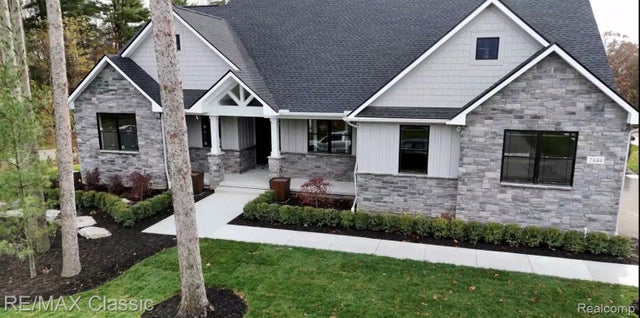
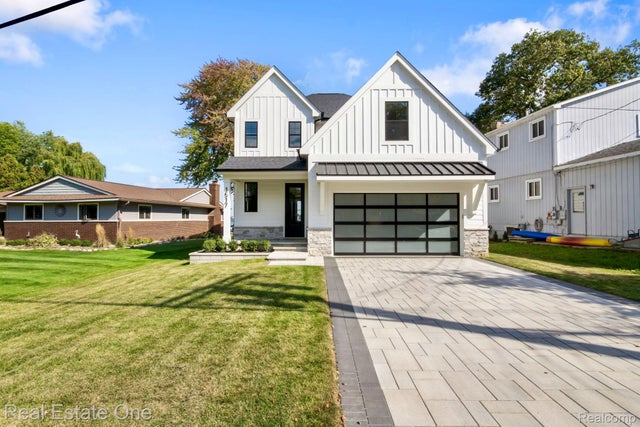
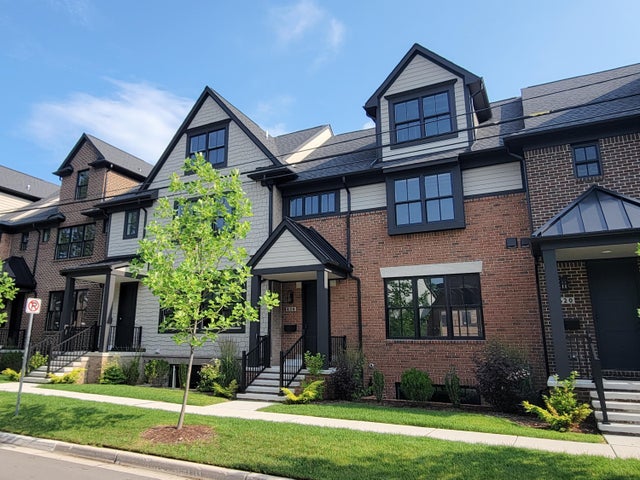
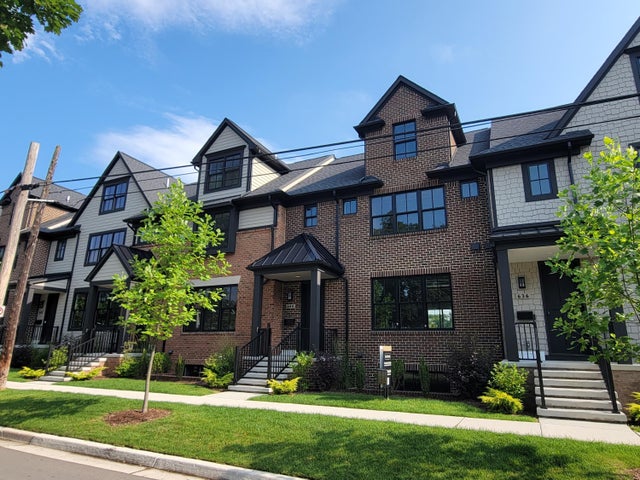

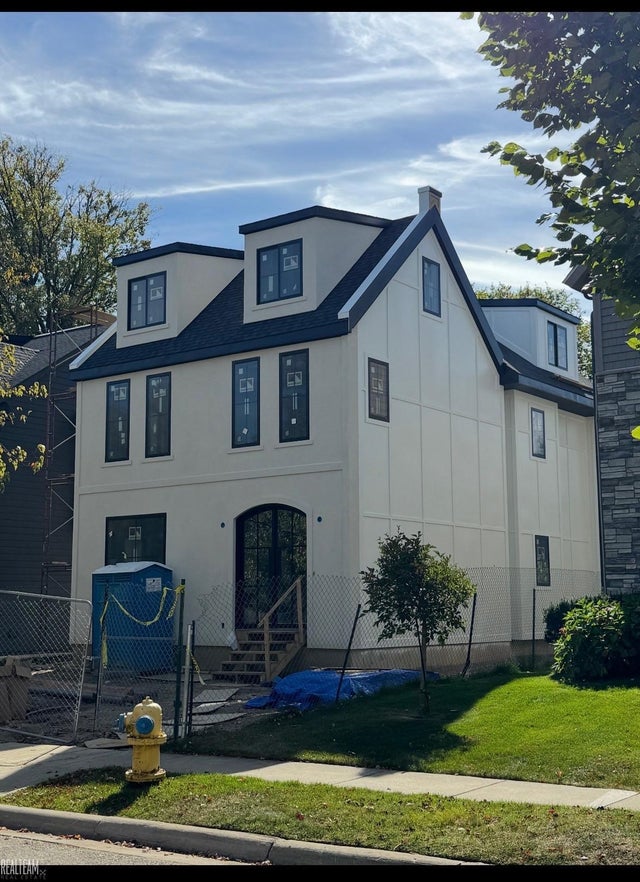
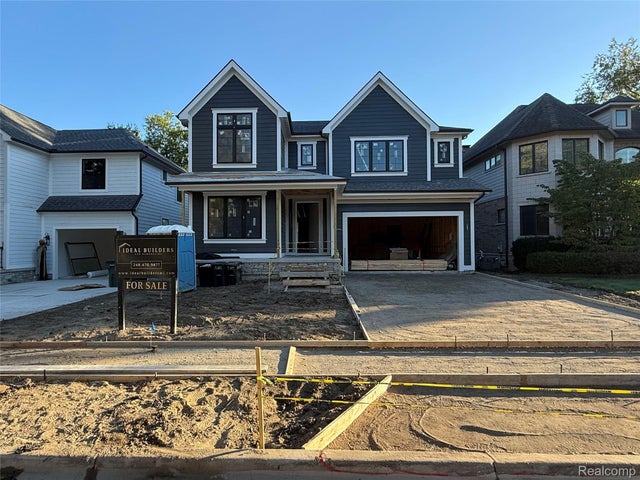



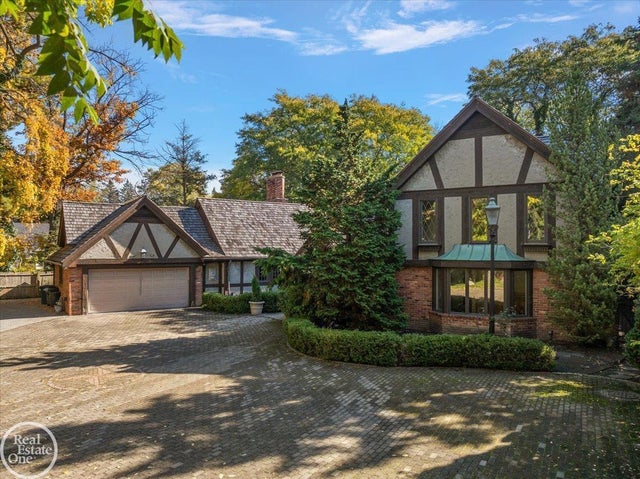


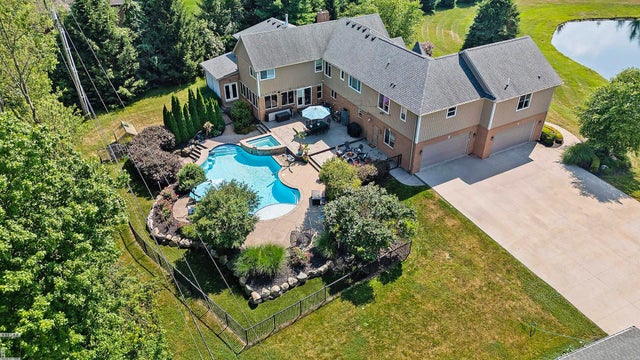

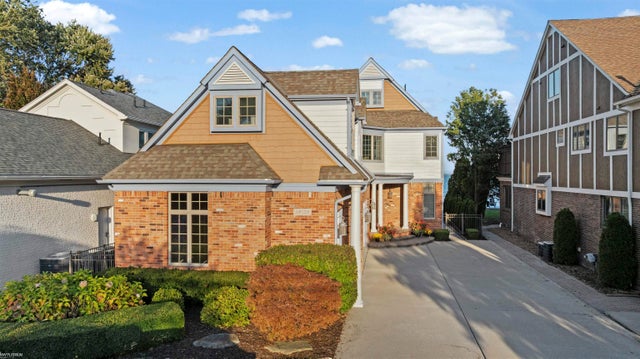

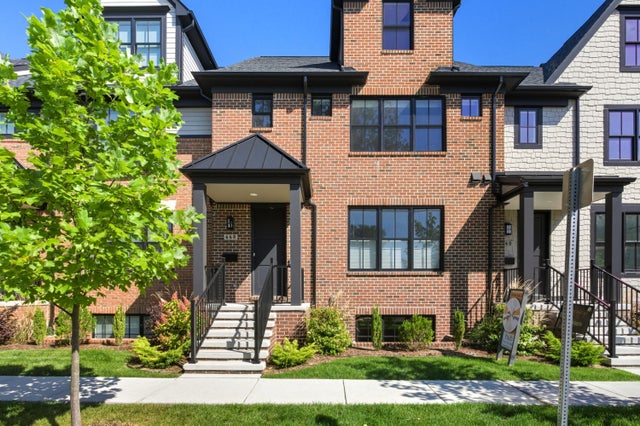






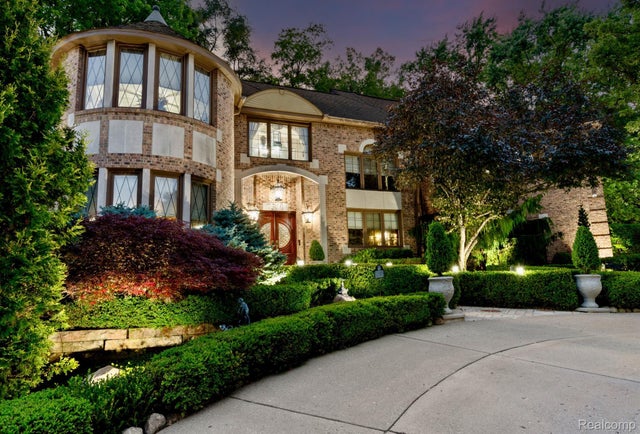



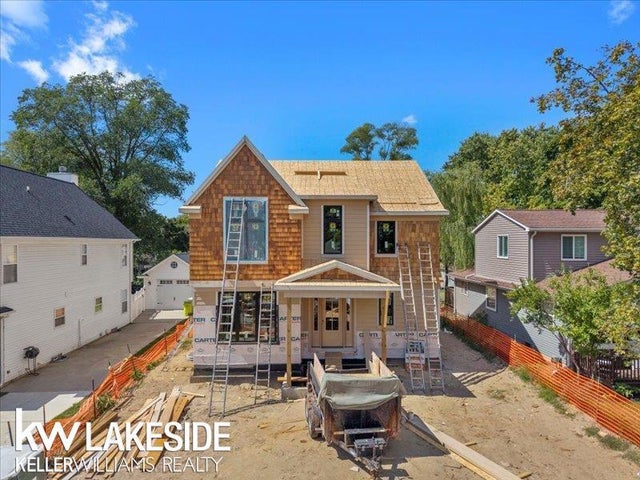



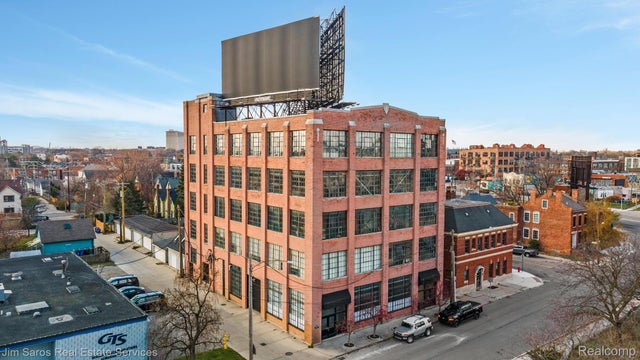

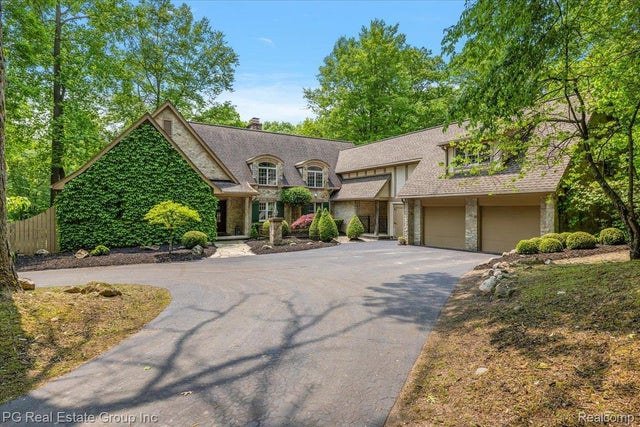
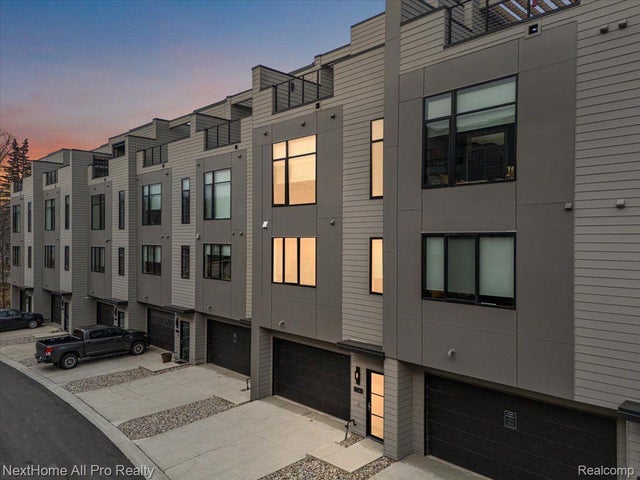



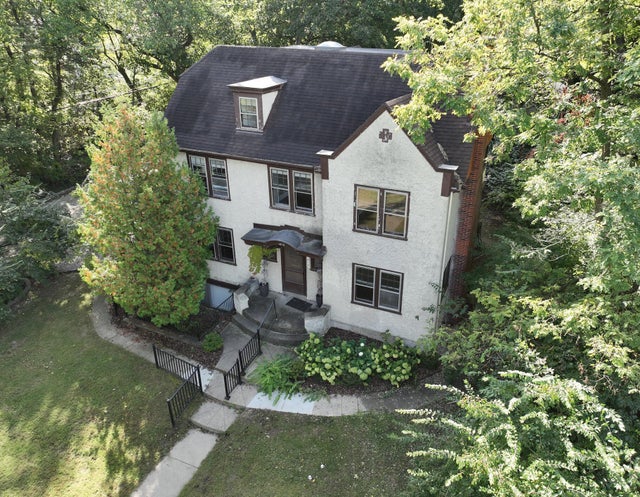
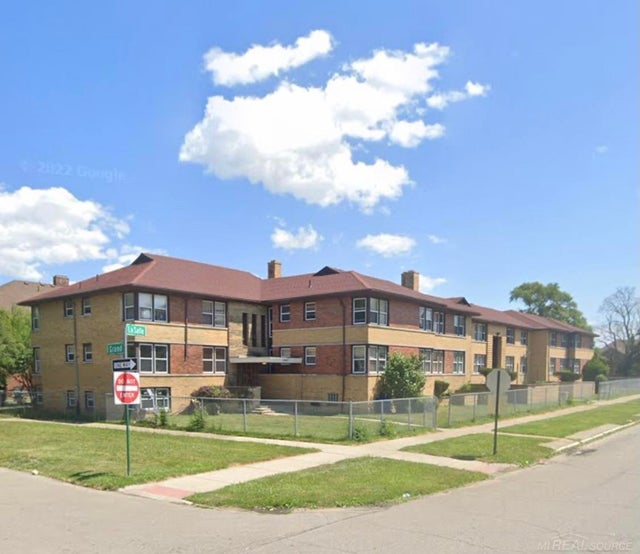






Leave A Comment